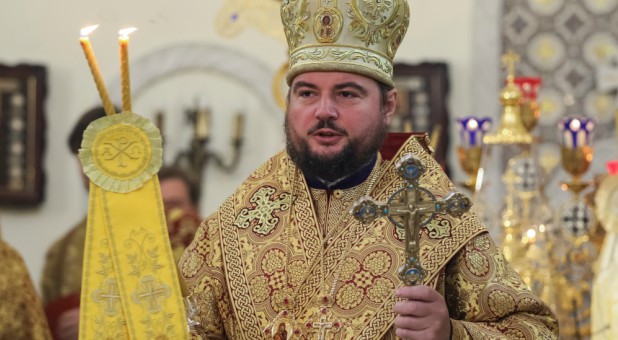Are These Priests Actually Russian Agents? Traitors?
Priests like Metropolitan Oleksandr face a choice: join Ukraine’s new independent church and be labeled a renegade by supporters of his own church, or stay away, and risk being branded a Russian agent.
It is a decision facing thousands of clerics as Ukraine prepares to sever ties to the Russian Orthodox Church going back to 1686.
For the Ukrainian authorities it is an essential step to tackling Russia’s malign influence on its soil, four years after Russia annexed Crimea and backed separatists in a conflict that has killed more than 10,000 people.
It may also help President Petro Poroshenko, who championed the split, shore up support in a tight election race next year.
But the move is opposed by the Kremlin and the Russian Orthodox Church, which compared it to the Great Schism of 1054 that split western and eastern Christianity.
Metropolitan Oleksandr, a member of the traditionally dominant Ukrainian Orthodox Church (Moscow Patriarchate), wants to join the new church because of what he calls its poisonous association with the Russian state.
“We love Russians, we love Russia, but we don’t love those who have unleashed a war on the part of Russia and who are feeding it today,” he said in an interview.
He echoes critics who call his church a tool used by Moscow to justify Russian expansionism and support the separatists.
Oleksandr compares setting up the new church to removing a diseased body part by surgery. “The surgical method is painful, but it must be done in the end in order for the body to begin to recover,” the 41-year-old said.
His stance comes at a price.
The Moscow Patriarchate has labeled those wanting to join the new church as “schismatics.” A high-ranking official, Metropolitan Antoniy, said joining the new church would be a betrayal.
In May, the Moscow Patriarchate censured Oleksandr for “obscene” behavior and told him to stop making public statements that could lead his followers into temptation.
Separately a video, watched more than 100,000 times on YouTube, called him a “traitor” and portrayed him as corrupt, soft on gay rights and involved in the abduction of two nuns.
Oleksandr, who regularly puts up photos and videos of his services on Facebook, reposted the video to his 12,000 followers to show what his opponents were up to.
POLITICAL GAME
Ukraine in October secured approval to set up an independent church from the Ecumenical Patriarch in Istanbul, the global spiritual leader of Orthodox Christians.
The next step is for Ukraine’s various church strands to meet to decide the make-up of the church and who will lead it.
The Russian Orthodox Church retaliated by breaking off all ties with Istanbul and accused the United States of engineering the split behind the scenes. President Vladimir Putin on Wednesday warned of “painful consequences.”
Patriarch Kirill of Moscow called the Ecumenical Patriarch Bartholomew’s support for an independent Ukrainian church “shameless.”
He said Orthodox unity could be preserved only through the “resistance of our people, our clergy, our episcopate, to every mean trick, to every heresy, to every schism.”
Ukraine and Russia trace their Orthodox Christian roots to Volodymyr the Great, the prince whose baptism in 988 in Kiev led to the christianisation of the region known as the “Kievan Rus.”
The Moscow Patriarchate, which is aligned with the Russian Orthodox Church, earlier dominated in Ukraine but has been challenged by a rival known as the Kiev Patriarchate formed after the 1991 break-up of the Russian-dominated Soviet Union.
Support for the Kiev Patriarchate swelled after the annexation of Crimea. It supports church independence and Ukraine’s closer integration with the West.
Oleksandr estimates between 40-70 percent of Moscow Patriarchate churches will join the new church, though his parishioners have mixed views. Some support it, while others, like Anna Trofimova, oppose it as a “political game.”
Archbishop Kliment, spokesman for the Ukrainian Orthodox Church (Moscow Patriarchate), said in an interview that only a tiny fraction of his church’s believers wanted to switch across.
Asked about the attacks on Oleksandr, Kliment said his church was itself the victim of a smear campaign.
As an example, he cited Foreign Minister Pavlo Klimkin’s statement that his church had no place in Ukraine and suggested it root out Russian agents in its ranks.
Kliment said support for independence had not risen but the authorities were pushing for it “because in six months there will be presidential elections.” {eoa}
© 2018 Thomson Reuters. All rights reserved.




























































